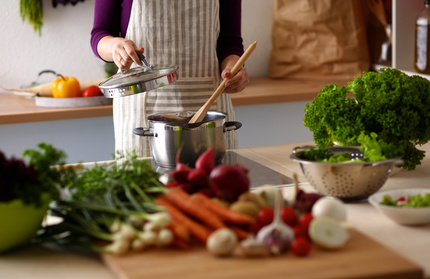

© lenetsnikolai – Fotolia.com
When you’re recovering from an eating disorder, you’re trying to free yourself from the foods, behaviors, and thought patterns associated with your food addiction.
Being honest about the problem is an important first step, but new habits won’t take hold immediately. You need to practice them over and over again until they become familiar and routine.
At the start of the year we talked about the benefits of taking a planning approach to life. Meal planning, shopping, and cooking at home are fundamental skills for recovery that are beneficial for many reasons:
- Eating out can be emotionally challenging while you’re learning a new way of eating and relating to food.
- Restaurant foods and portion sizes may not fit how you want to be eating.
- Dining out is more expensive than cooking at home.
- Buying food on the run or making a last minute decision tends to lead to less healthy choices than you would make if you had planned calmly ahead of time.
- Shopping with a list helps you stick to your plan and spend less money on impulse purchases.
If you feel resistant to cooking and eating at home, check to make sure your space is set up for the tasks. Do you have a functional and attractive place to prepare meals? What is around you when you sit down to eat?
Your emotional recovery from an eating disorder depends on your physical self-care. Start by getting enough rest, staying hydrated, seeking expert help, and cooking healthy food at home.
